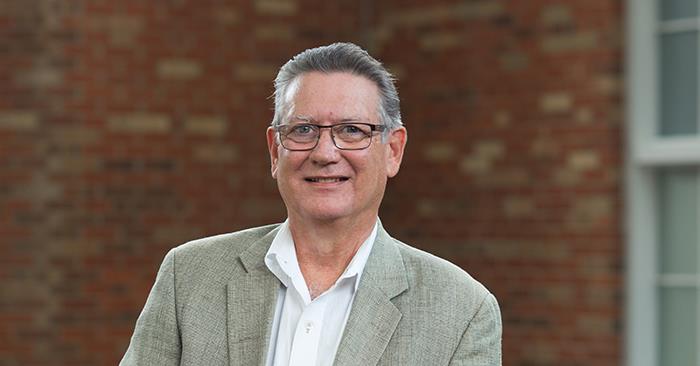New Program Aims to Support Campus Entrepreneurs

Chuck Boughton, instructor of business administration, will serve as the University’s first entrepreneurship fellow.
The University has established the Entrepreneurship Fellow program, a collaborative partnership between the Academic Affairs and Advancement offices, designed to coordinate and expand entrepreneurship education efforts on campus.
Chuck Boughton, instructor of business administration, has been tapped to serve as the inaugural fellow. He brings more than 30 years of experience as an educator, business leader and consultant to the role. In an effort to develop a long-term vision of how the University can best support its students, faculty and alumni entrepreneurs in ways that further Truman’s educational mission and liberal arts values, he will work with an advisory committee, faculty members and students.
“There are a lot of interesting things happening on campus, but they’re fragmented,” Bougthon said. “What we’re hoping to do with this new endeavor is to try and create a platform, or a forum, to coordinate, communicate and expand these activities.”
Along with student groups like Enactus, Community of College Entrepreneurs and the Student-Run Business Initiative, Boughton acknowledged there are several classes led by faculty members that promote entrepreneurship, as well as individual efforts. The increasing number of participants in the annual Bulldog B.I.T.E. pitch competition is also an indication of a growing need for the new program.
“We’ve got pockets of entrepreneurship sort of springing up independently,” he said. “What we are trying to do is identify those pockets, build on them and promote that spirit of entrepreneurship.”
The fellowship program will go beyond the bounds of fields typically associated with entrepreneurs and could possibly involve any person, department or program at Truman.
“It doesn’t matter what part of the University you’re in, you’ve got passions, you’ve got interests, you’ve got things that could very well turn into meaningful lifelong opportunities,” Boughton said.
One aspect Boughton hopes to include is internship opportunities that could give students an idea of what it is like to start and run a business rather than be an employee in an established outfit.
“The primary focus right now is on generating internship opportunities that are with new start-ups, companies that are maybe six months to two years old,” he said. “We’re reaching out to alumni and other friends of the University to generate more internship opportunities for students.”
Although the Entrepreneurship Fellow program is still in its infancy, Boughton foresees a time when it provides an additional path to success for students just like established programs currently do.
“The way I look at the Truman experience is, it’s a continuum,” he said. “It starts with recruiting students to Truman and building our student base, and then having meaningful opportunities and experiences for students while they’re here that are tailored to their interests.”
Anyone interested in learning more about the Entrepreneurship Fellow program at Truman can contact Boughton at boughton@truman.edu.
